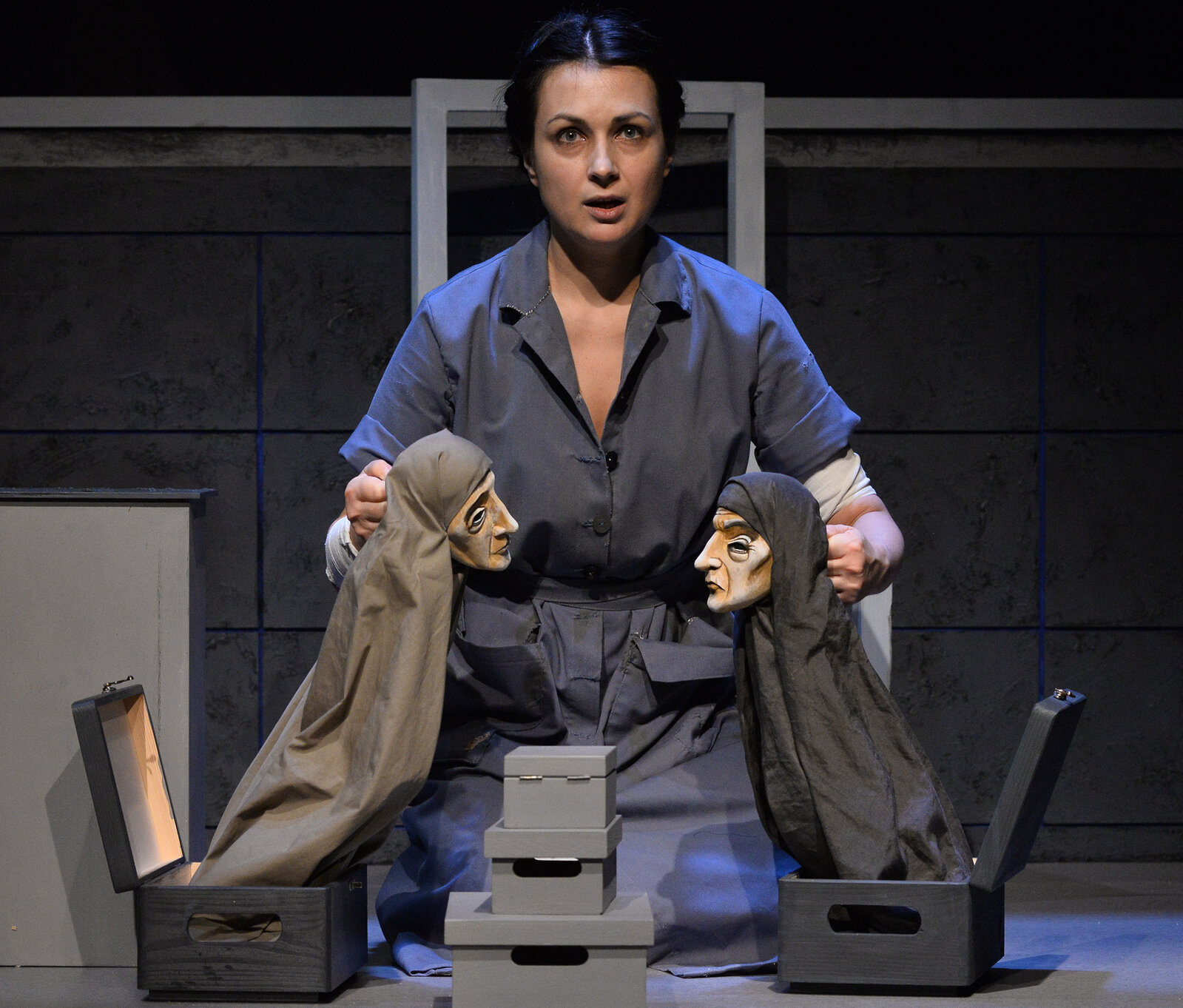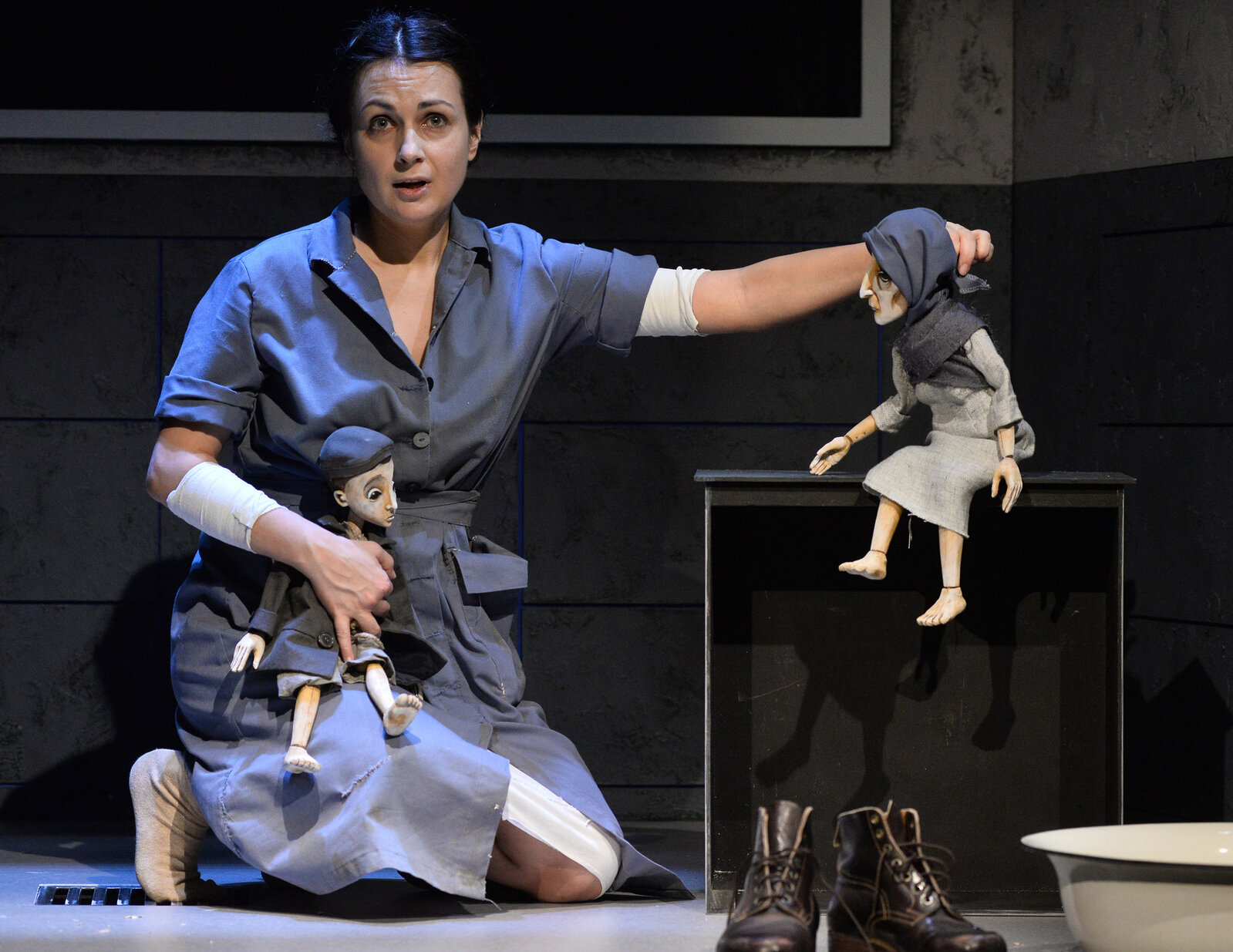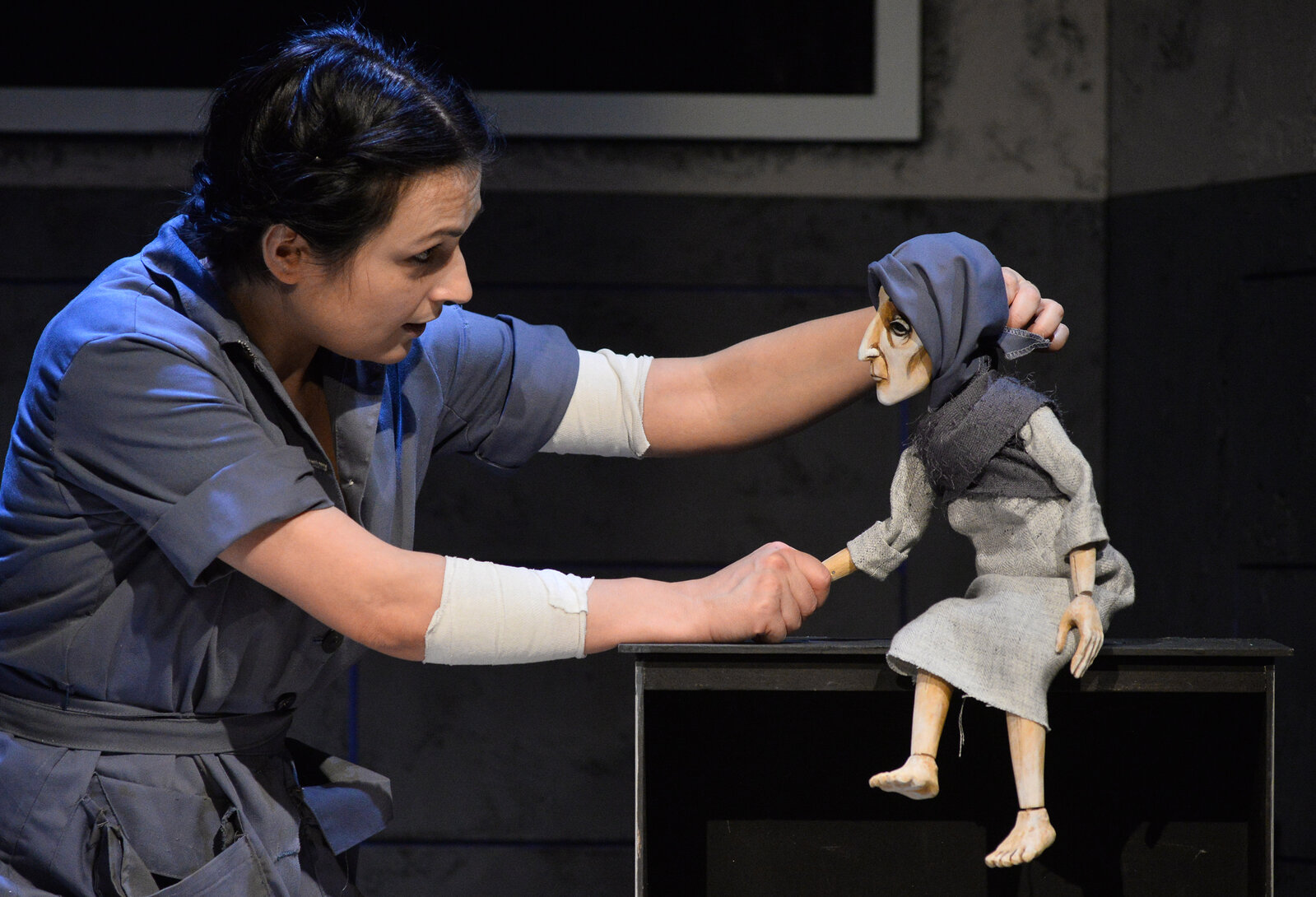The Body is a Prison Cell Locking Us in – Interview with actress Mara Pallai and director Károly Hoffer about Budapest Puppet Theatre's production, Apa lánya (A Father's Daughter).
The VEB2023 ECoC theatre concept programme, 'Unconventional Spaces' (in Hungarian: Rendhagyó terek), will open with an out-of-the-ordinary monodrama. In the case of ‘A Father's Daughter’, it is not the play or the performance but the space which is unusual. We spoke to the protagonist of the heart-wrenching monodrama, Mara Pallai, and the director Károly Hoffer.

Hello VEB (HV): Let's start with the basics. Why do we think of puppet theatre as a stage for children's shows rather than a serious theatre for adults?
Mara Pallai (MP): Not many people know this, but puppet theatre is not a children's genre. That the public thinks it is, is only a few decades-old phenomenon, a brief period in the long history of playacting. It was turned into entertainment for children in the 1970s. In the 50s and 60s, when the Budapest Puppet Theatre was still the State Puppet Theatre, there were quite a few adult productions.
Károly Hoffer (KH): Puppet plays have their roots in the Far East. Indonesia, for example, has a long tradition of lengthy, even all-night performances for adults. They even have rules about where men, women and children should be seated at puppet shows because the angle you watched the shadow play from made a difference. It's interesting because, for some unfathomable reason, it seems almost impossible to reverse the trend of puppetry becoming a children's programme in our country. We work hard at turning it around it, however.

HV: How open is the profession and the public to the idea of puppet theatre moving back towards an adult mentality?
KH: Fortunately, there are a lot of theatres of prose that are open to the genre of puppetry, and they adopt a lot of visual abstractions and stylised solutions. At the same time, puppet theatre is inching closer to prose theatre. The thinking of puppeteers is becoming more complex, approaching the arts more and more as an all-encompassing form of expression. There are more and more performances that include live actors.
MP: It depends entirely on the specific play and the audience you are able to engage. In recent years, we have been seeing puppetry succeed more and more with adult audiences. At the Budapest Puppet Theatre, we put a lot of effort into creating more shows for high school students and adults. We see that the audiences are receptive to this endeavour.
KH: We perform for everyone from babies to adults. We bunch our performances according to specific age groups so people can find productions tailored to their taste. I'd like to believe that we're pulling in more viewers. I think that's what we are seeing, but it's a very long process, and we're far from the end.

HV: 'A Father's Daughter' deals with a challenging and very unfortunate topical subject. It was inspired by a Catholic nurse who saved thousands of Jewish children.
KH: The play was indeed inspired by the life of Irena Sendler. Unfortunately, very little source material is available about her in Hungarian, so Mara and I spent a long time researching French sources to understand her story. From the very beginning, we tried to create a sufficiently complex picture of her personality and made her story adequately general by omitting names and other specifics. We wanted to show how an individual approaches society's expectations and the struggles he may need to endure when things fail or happen against his will. János Háy, who wrote the play, put lots of energy into it. I think he succeeded in painting pictures and creating situations that illustrate how one behaves in a war when one must adapt to a completely different set of social norms. It's a heart-wrenching play set in a prison cell and conveys a very complex message. In the play, János Háy says that our body is a cell keeping our consciousness imprisoned – as symbolised by a constricted space.
MP: The play is not for adults only; it is rated for audiences as young as 16. Teenagers in their everyday lives face dilemmas and problems similar to the ones addressed in the play. Unfortunately, the war that has now broken out makes the drama very topical. For this very reason, it is now much more challenging to deliver the sentences written three years ago. Reality and topicality have crept into the text. It is a fascinating process and not one to come to terms with easily, especially now that the text and the subject of the play have become so meaningful and topical.

HV: It is a monodrama, a challenging genre because it has only one actor and one role. How does the structure and experience of such a play differ from a multi-character production?
KH: Playing in a monodrama is far different from working in a team. Everything rests on the shoulders of the one main character. You don't have colleagues to help you if you run out of energy or your rhythm changes. You must project the entire play solely by yourself. It is a vast but magnificent and noble struggle.
MP: Of course, there are also advantages to being alone, but the fact is that whether it is a prose theatre or not, it takes a lot of work to do a play alone. In this production, for example, I have at least ten to fourteen characters to portray because, in this case, my partners are puppets, and I'm the one who voices them. The whole performance takes place within the space of a prison cell, i.e., a closed set, so there is little room for prompts or other assistance in the limited space. We have recently found a solution, and it’s a great help, even if I don't usually have to rely on it. It helps to know that I am not alone. There are, of course, set designs and props that contribute to the performance. With all that said, it's a solitary mission, and this very strange complexity makes it an exciting, truly special theatrical experience.
